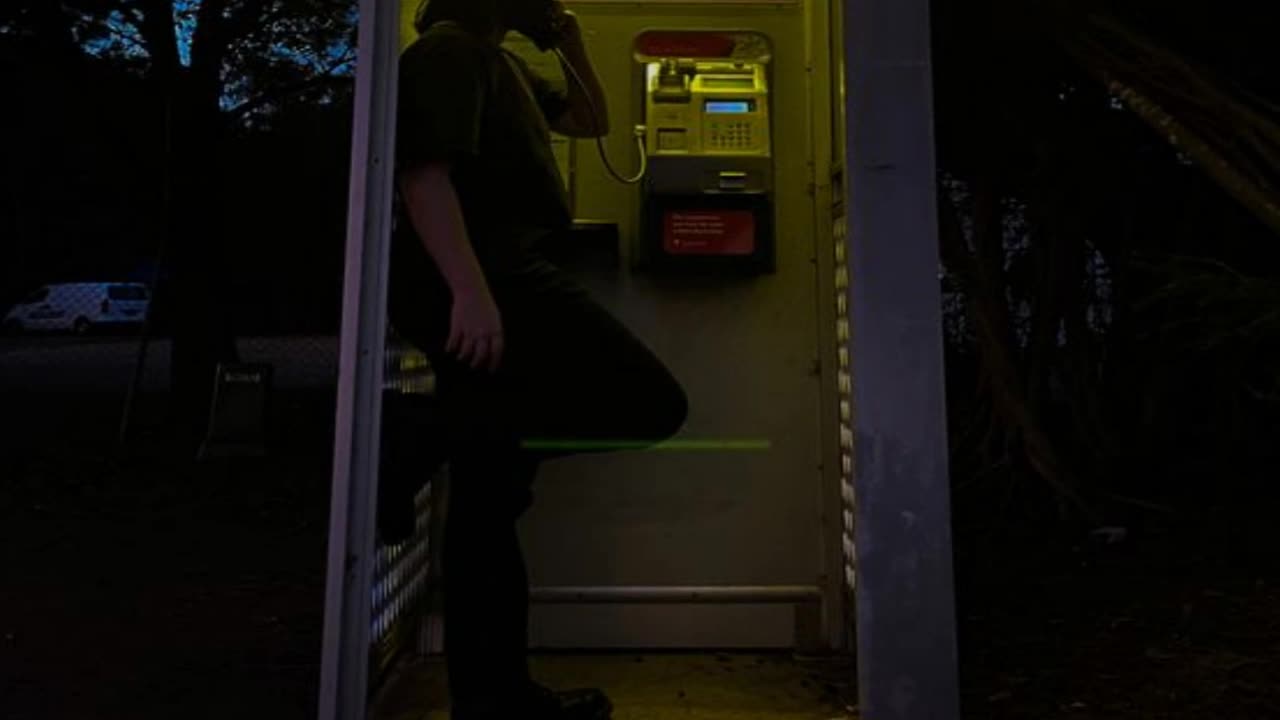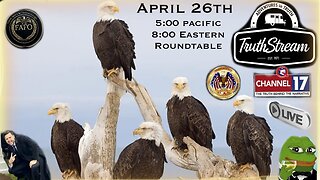Premium Only Content

Time In A Bottle Operator Thats Not The Way It Feels I Got A Name Jim Croce
Time In A Bottle Album: You Don't Mess Around With Jim (1972)
Operator (That's Not the Way It Feels) Album: You Don't Mess Around With Jim (1972)
I Got A Name Album: I Got A Name (1973)
by Jim Croce
"Time In a Bottle," was released in late 1973 as a single after Croce died in a plane crash.
Jim Croce wrote Time In A Bottle the night that he found out his wife, Ingrid, was pregnant. The couple had been married for five years, and Ingrid found out she was pregnant when she went to a fertility specialist. She recalls a mix of terror and delight in Jim's reaction when she told him the news. The child was a boy named Adrian, who grew up to become the singer-songwriter A.J. Croce.
"Time In A Bottle" hit #1 in America 14 weeks after Croce was killed in a plane crash. Croce started touring after he completed his last album, I Got A Name. On September 30, 1973 a plane carrying Croce and five others crashed upon takeoff as he was leaving one college venue to another 70 miles away. No one survived the accident, and among those killed was Maury Muehleisen, who played guitar on Croce's albums. Terry Cashman, who produced Croce, told us, "Jim and Maury got together and all of the sudden Jim started writing these great songs, and Maury came up with these really wonderful guitar parts - the two guitars were like an orchestra."
"Time In A Bottle" entered the Top 40 of the Billboard Hot 100 chart for the week ending December 1, 1973 and finally reached #1 for the week ending December 29, a little over three months after he died.
Time In A Bottle was never intended to be a single - it was released on Croce's first major-label solo album You Don't Mess Around With Jim in 1972. The album had already yielded the #8 title track and #17 "Operator (That's Not the Way It Feels)." His second LP, Life And Times, had given Croce his first #1 single, "Bad, Bad Leroy Brown." "Time In A Bottle" became a hit over a year after it was first released when it was used in the ABC made-for-TV movie She Lives, about a woman dying of cancer.
The song's producer, Terry Cashman, was less than thrilled with the idea of recycling old songs, but ABC Records management loved the idea and OK'ed the use of Time In A Bottle in She Lives. The movie aired September 12, 1973 (as Croce was putting the finishing touches on his I Got A Name LP). Television stations were deluged with telephone calls from viewers who wanted to know where to buy the song. The next day, ABC Records had received orders for 50,000 copies of You Don't Mess Around With Jim, with sales of about 200,000 by the end of September 1973.
Time In A Bottle was also included in the soundtrack of the movie The Last American Hero.
The international drug lord in the movie The Hangover 2 sings Time In A Bottle while he and the gang are going up an elevator in Bangkok to make a money for hostage deal.
Time In A Bottle was featured in a 2016 commercial for the iPhone 6, where Cookie Monster (of Sesame Street fame), uses the hands-free Siri function to set a timer for the cookies he's baking and play his "waiting" playlist. This is the first song, and as it plays, Cookie Monster gets agitated waiting for his treats. When he asks Siri to check the timer, only a minute has passed.
Ingrid Croce, who was married to Jim from 1966 until his death in 1973, told the story of this song: "'Operator' is one of my favorite songs. I think it's a pretty interesting song in the way in which it was composed. It's probably like a lot of songs of Jim's, but it's one that I think a lot of people relate to in a whole bunch of different ways.
Jim and I had gotten married in 1966, and we had been waiting for him to go in the service. He was a National Guard, which he had joined with the hope that he would not be sent over, and he would be able to continue his education and his music career. So he signed up for the National Guard, and just as soon as we decided to get married - in August of 1966, the week before our little wedding - he got a letter that said that he would be leaving within two weeks for his National Guard duty down in South or North Carolina, so he was leaving with a very heavy heart.
My dad had been very ill and shortly after that passed away. And we had just waited... wanted to get married and have some time to be together after all those years of waiting. All of the sudden here he is the National Guard, and Jim is not very good with authority. And he's in the South, and they were not very good with making pasta. He was missing good food, he was missing me, he was missing life in general.
He's one of the few guys I think who went through basic training twice... he really couldn't follow the system. He'd always find things that were funny, like a handbook that he put together in dealing with the service with a whole bunch of quotes of how to deal with people in the Army.
But anyway, he was standing there in the rain at a payphone. And he was listening to these stories of all these guys, the 'Dear John' stories, that were standing in line waiting their turn in the rain with these green rain jackets over their heads - I can just picture it, all of them in line waiting for their 3-minute phone call. Most of them were getting on the phone and they were okay, but some of them were getting these 'Dear John' letters, or phone calls. I think that was the most important aspect of the song, because it was just so desperate. You know, 'I only have a dime' and 'You can keep the dime' because money was very scarce and very precious, and I think if you look at the words to the song there are so many aspects of our generation that are in it.
'Operator, could you help me place this call?' I'm picturing Jim out in the rain and this long line of guys where they're really trying to reach somebody. It was hard to get through, so you always had the operator do it for you."
Jim Croce had a way of relating to a diversity of people, which was reflected in his songs. Ingrid explains how some of his life experience came into play on this song: "We used to work at this place called The Riddle Paddock which was a bar out in Lima, Pennsylvania, and it was absolutely the wildest most unusual bar in that it had everything... the kind of people that would come there would be, like, sheepherders from the towns nearby that were from Australia, and then they'd have people that were from the mushroom paoli which was, I think, the center of mushrooms in the United States. And then they'd have your normal city folks that would come out to The Riddle Paddock.
All these people would hang there, and it was a real bar atmosphere, and people would come in every single night to hear Jim play, and most of the time he wouldn't repeat a song - he had a repertoire of over 3,000 songs. Many of them got to know Jim and me pretty well, and they'd come and tell stories, or you'd know stories about who wasn't with someone that night, and so Jim would always sing a special song for them. And I think that part of that story is kind of engaged in 'Operator,' where people would kind of break the relationship up. We never knew who would go into the Paddock that night, because if Jim was playing they wouldn't want to see each other. That's one of those sad kind of stories, and I think that anybody can relate - everybody has to have their heart broken at least once or twice before they have a real relationship."
Ingrid Croce opened a restaurant and bar of her own in 1985 called Croce's that served to honor Jim's memory.
In 2000, the Martin guitar company produced 73 guitars in honor of Jim Croce. In each of these guitars, an uncirculated 1973 dime was inserted in the third fret fingerboard in honor of this song and the final line, "You can keep the dime."
Having the last name Croce made things interesting for Ingrid when she needed the services of an operator. "You can imagine how many operators over the years have said to me, 'Are you any relation?' You don't get in touch with operators very much any more, but in the olden days when you'd call up and you'd say, 'Can you help me?' 'Oh, what's the name?' I said, 'Well, my name is Croce.' 'Like in Jim? Oh, we just love that 'Operator.' Hey Sadie, this is Ingrid Croce - you know, Jim Croce's widow. And oh, we just love that song so much. He wrote it for us, we know he did..." I mean, from every aspect the song is truly Americana. And I think it really hits all generations, but certainly that one."
This was the second single from Jim Croce's breakthrough album, You Don't Mess Around with Jim. Croce was broke and working construction when he wrote the songs that would appear on the album, and he even asked his manager to shop them to other artists hoping for any kind of payday.
"I Got a Name" was released in the wake of Croce's death. The week that "I Got a Name" hit #10 (November 17, 1973), it was finally released as a single. Six weeks later, it became the third posthumous #1 of the rock era (after "Dock Of The Bay" and "Me And Bobby McGee").
I Got A Name was the theme song for the 1973 movie The Last American Hero, starring Jeff Bridges as a stock car racer. The movie is based on the true story of the stock car driver Junior Johnson.
I Got A Name is a rare song that Croce recorded but did not write. Ingrid Croce, who was married to Jim from 1966 until his death in 1973, said: "It was written by Norman Gimbel and Charles Fox. And they were wonderful guys, really nice people. Jim had been selected to sing this song for this particular movie. He really enjoyed this opportunity, because he went into the recording studio and it was a little awkward for him not to hold his guitar - his guitar is kind of like a bar for the bartender, having that prop between him and the audience was just a real security, it made him feel very comfortable. So putting down the guitar to sing, just to sing the song in the studio, was a very unusual thing for Jim, and he thoroughly enjoyed it. It was a brand new start for him in some ways, to use his vocals in a different way. I think it's one of the most powerful songs he does on that album for sure. I loved it."
Explaining how this song was a good fit for her husband, Ingrid says: "More people think he wrote that song. His voice was so unique... the timbre in his tone and his warmth and his generosity, everything came through that voice. So when he took a song, he'd make it his own, and I think he did a great job with 'I've Got A Name.' So many people like to think of Jim with that song that I hate to tell them it isn't his."
The album I Got A Name was produced by Terry Cashman and Tommy West, who had a hit as Cashman & West with "American City Suite." Says Cashman: "We recorded it because Jim was going to get a lot of money to record the song, and if it was released as a single, it would be the main title of a movie called The Last American Hero. So it wasn't a song that Jim wrote on the guitar with Maury [Muehleisen]. Tommy and Jimmy and Maury and myself came up with the arrangement together. It was a different kind of animal. We did that song with just the tracks for us, and then recorded Jim's voice over it, which is the way most people did records in those days. But most people think that Jim wrote that song because it sounds like the other songs, and then the production of course is a little bit more elaborate. It was different in that way, but Maury has a big guitar part and it certainly sounded like one of his records. And it became one of his most popular records. You know, a lot of people have covered that song, and it's been used in a number of other movies." (from a Songfacts interview with Terry Cashman)
I Got A Name was the last song Croce played before his death. He performed it as an encore at show in Natchitoches, Louisiana at Northwestern College. The crowd was small, as many folks stayed home to watch the Billie Jean King vs. Bobby Riggs "Battle of the Sexes" tennis match that night. Croce's plane, taking off in the dark after the concert, clipped a tree and crashed, killing all six people on board.
Quentin Tarantino used I Got A Name in his 2012 film Django Unchained. The film is set in 1858, but features some modern music, including cuts by Rick Ross and John Legend. The song was used in a scene were Django (Jamie Foxx) has been freed.
Other films that have used I Got A Name include The Ice Storm (1997) and Invincible (2006).
Lena Horne sang I Got A Name in 1976 on the first season of The Muppet Show. Horne's appearance earned the show a great deal of credibility, making it easier for the show's producers to find guests willing to perform with puppets.
Jim Croce's son A.J. Croce recorded I Got A Name for a 2018 Goodyear tire ad that pays tribute to famed racecar driver Dale Earnhardt Jr, whose father, NASCAR Hall of Fame member Dale Earnhardt Sr. died in a car crash at age 49.
Both A.J. and Earnhardt Jr. lost their fathers young, and Croce said that the similarities between Earnhardt Jr.'s life and his own made contributing to the commercial appealing to him:
"There aren't a lot of people that grow up in the shadows of a famous musician, or race car driver," he explained to ABC Radio. "I get what he lived through, and he gets what I lived through."
-
 9:19
9:19
Psychological operations
1 day agoGold Dust Woman Gypsy Fleetwood Mac
13 -
 2:37:49
2:37:49
The Connect: With Johnny Mitchell
1 day ago $3.41 earnedBlackwater Mercenary EXPOSES Private Military War Secrets From The Middle East, Fueling Terrorism
19.4K12 -
 2:54:21
2:54:21
Total Horse Channel
1 day ago2025 Scottsdale Arabian Horse Show | Saturday Evening Session
44.1K4 -
 22:39
22:39
The Mel K Show
6 hours agoMel K & Representative Brandon Gill | Our Constitutional Republic is Being Restored | 4-26-25
39.7K20 -
 4:17:17
4:17:17
VapinGamers
6 hours ago $1.25 earned📣 Fortnite Family Night! - Games and Dubs with BrianZGame - !rumbot
22.9K1 -
 LIVE
LIVE
ThePope_Live
4 hours agoLIVE - First time playing The Finals in over a YEAR! Still good? with @Arrowthorn
151 watching -
 3:06:26
3:06:26
TruthStream with Joe and Scott
10 hours agoRoundtable with Patriot Underground and News Treason Live 4/26 5pm pacific 8pm Eastern
31.8K26 -
 8:52
8:52
Tundra Tactical
7 hours ago $8.27 earnedSCOTUS Denies Appeal, Minnesota Courts Deal 2a Win!
38.3K8 -
 LIVE
LIVE
a12cat34dog
9 hours agoONE WITH THE DARK & SHADOWS :: The Elder Scrolls IV: Oblivion Remastered :: FIRST-TIME PLAYING {18+}
884 watching -
 22:27
22:27
Exploring With Nug
16 hours ago $12.16 earnedSwamp Yields a Chilling Discovery in 40-Year Search for Missing Man!
52.3K17